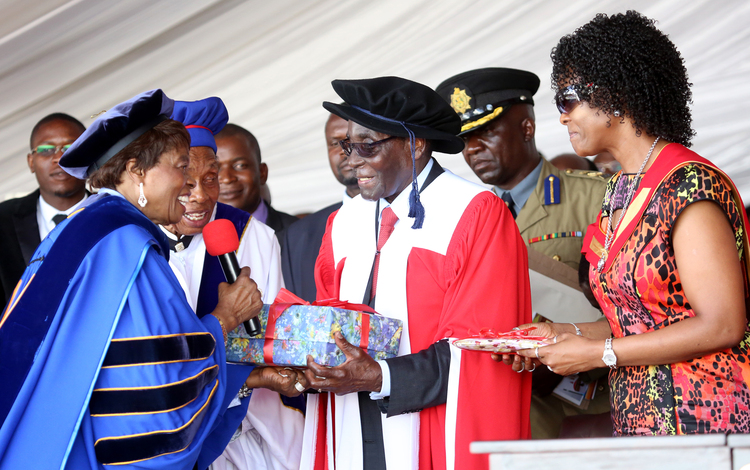EDITORIAL COMMENT: Churches must conform to by-laws

 Harare City Council is correct in insisting that churches conform to a small set of minimum standards when building their places of worship and assembly. The council is not trying to stop people worshipping in any way they wish, nor does it want to make money out of churches. All it does want is that churches meet safety standards and basic building standards.
Harare City Council is correct in insisting that churches conform to a small set of minimum standards when building their places of worship and assembly. The council is not trying to stop people worshipping in any way they wish, nor does it want to make money out of churches. All it does want is that churches meet safety standards and basic building standards.
For a start, a church needs to own the land it is planning to build on, or at least have the permission of the landowner to do so. That seems obvious but some have been building churches on pieces of municipal land without going through the process of obtaining permission from the council or going through the fairly simple process of applying for a church stand and paying the modest sums involved.
The council has land zoned for churches in most of its high-density suburbs and generally charges a non-profit sum to transfer the land, just enough to cover the council’s cost of servicing the stand, along with conditions over how that land is to be used. Generally, a church has to eschew commercial activity and start building within a specified period to obtain the price concessions. Some council land may be available in other areas but this is not frequent.
In these other areas a church frequently has to buy a suitable stand from private landowners, and then apply to the council for permission to use that land for church buildings. This is usually granted with modest conditions, again that a church is building structures for worship, not a shopping centre, which requires a different and more complex set of regulations. Church schools need to follow the basic rules for a school, which like those for churches are not onerous.
The second set of conditions the council insists on is adherence to the by-laws regarding building and safety standards. Churches are technically places of public assembly, and so the council needs to ensure that there are adequate doors in case of a rapid evacuation in an emergency, adequate ventilation and enough toilets and that the building is generally sound and will not fall down or shed bricks and other dangerous material on worshippers and visitors. Maximum numbers that can be in the building at any one time are specified, the figure arrived at by seeing how big the building is and what safety measures are in place.
Again these conditions are not onerous. The council cares little what colour a church is painted, or even if is painted at all. Appearance does not make the list of criteria needed for approval. All that is required is sound construction, approved by council technicians, and conformity to safety standards that are basically common sense.
Some churches complain that they do not have even the basic funds to build proper buildings. Well, many congregations of large church groups, and many single building churches, started by having prayer services in a house attended by half a dozen people and then renting school halls and the like for their main weekly services. Purpose-built places of worship on land owned by the religious organisation came later as numbers grew and money was raised and saved. A glance at the foundation stones for the Anglican Cathedral in the city centre shows that it took over half a century to complete that magnificent edifice.
Where the council can be faulted is waiting until dozens of small churches have been built illegally and then threatening to demolish them. The council should have been moving in as the first illegal bricks were delivered and stopping the building process at the very start, while telling the congregation how they could build legally.
But the general council thrust of making it easy for a congregation to build a church but insisting that the simple permission procedures are followed and the structure is sound and safe cannot be faulted.






Comments